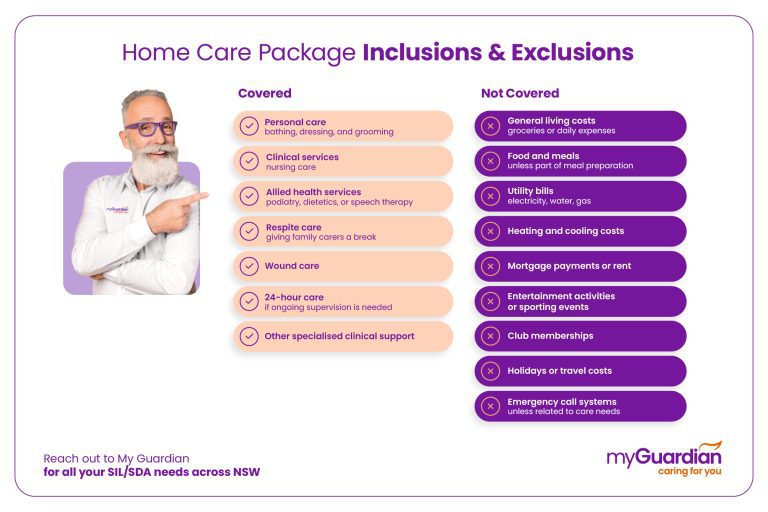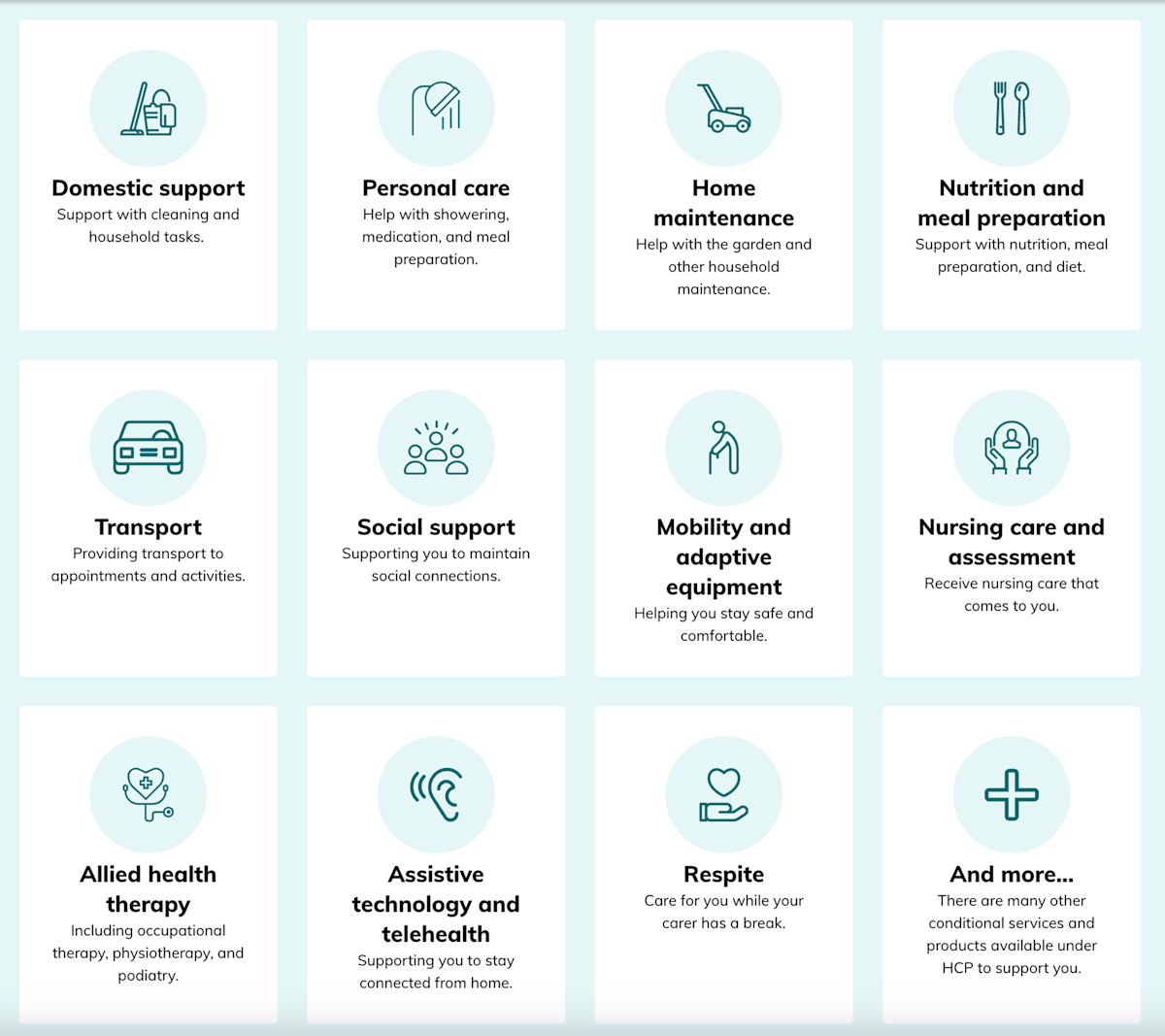Common mistakes to avoid when hiring home care providers
Common mistakes to avoid when hiring home care providers
Blog Article
Everything About Home Treatment Services for Individuals With Disabilities: NDIS Registered Support
Home treatment solutions under the NDIS play a pivotal function in supporting individuals with disabilities. These services are developed to improve day-to-day living through tailored help, varying from personal like mobility assistance. Comprehending just how to navigate these options can be complex. This review checks out the different facets of NDIS home treatment, from readily available services to the selection of service providers, highlighting essential considerations for those looking for support. The journey toward encouraged treatment starts right here.
Comprehending the NDIS and Its Function
The National Special Needs Insurance Policy System (NDIS) works as a transformative structure developed to offer support and services for people with disabilities. Developed to improve the high quality of life and assurance equitable accessibility to essential resources, the NDIS empowers participants by offering personalized plans tailored to their special demands. It aims to promote self-reliance, enabling people to pursue their individual goals and aspirations.Through an organized technique, the NDIS allocates financing for different supports, including education, work help, and neighborhood participation. This comprehensive plan not only concentrates on instant care yet likewise stresses long-term developing end results. By advertising option and control, the NDIS encourages individuals to pick their recommended provider, assuring that care straightens with their choices and values. Inevitably, the NDIS represents a significant commitment to boosting the lives of people with specials needs, cultivating inclusivity, and constructing a more helpful culture.
Kinds Of Home Care Services Available
Different kinds of home care services deal with people with disabilities, mostly concentrating on personal treatment aid and respite care options. Personal care support supplies vital assistance with day-to-day tasks, while respite care provides temporary alleviation for main caretakers. Recognizing these services is vital for making certain the well-being of both people with impairments and their family members.
Personal Treatment Support
While steering every day life can offer obstacles for individuals with disabilities, individual treatment help supplies important support customized to their one-of-a-kind demands. This kind of home treatment solution encompasses a variety of tasks made to advertise independence and enhance lifestyle. Personal treatment aides aid with day-to-day jobs such as bathing, dressing, grooming, and toileting, guaranteeing people maintain individual hygiene and convenience. They might additionally aid with meal preparation, drug administration, and wheelchair support. By providing individualized care, these professionals encourage individuals to engage more completely in their social activities and daily regimens. Overall, individual care aid plays a considerable role in cultivating dignity and freedom for those with impairments, permitting them to prosper in their home environment.

Respite Treatment Options
Reprieve care functions as a vital resource for households and caregivers of individuals with disabilities, providing temporary remedy for the needs of day-to-day caregiving. This sort of solution can take various types, including at home respite treatment, where skilled experts go to the home to help with care jobs. Conversely, family members might choose facility-based break care, where individuals obtain treatment in a specific atmosphere, enabling caretakers to pause. In addition, some companies use emergency respite solutions for unanticipated conditions. These alternatives not only aid alleviate caretaker stress and anxiety however likewise promote the well-being of individuals with handicaps by supplying them new experiences and social communication. In general, reprieve care plays a critical function in supporting both caretakers and those they care for.

Just How to Accessibility NDIS Home Care Services
Accessing NDIS home treatment services involves recognizing the qualification requirements stated by the National Impairment Insurance Coverage Plan. Individuals have to browse an organized application process to secure the essential assistance tailored to their demands. This area will clarify both the eligibility requirements and the actions included in looking for services.
Qualification Requirements Described
To certify for NDIS home care services, individuals must satisfy specific qualification requirements that analyze their needs and conditions. Applicants must be aged between 7 and 65 years and have a long-term and considerable special needs that influences their capability to do everyday activities. Furthermore, they should be an Australian citizen, a copyright, or hold a Protected Unique Group Visa. The NDIS calls for proof of the impairment, typically through clinical analyses or reports. Furthermore, people need to demonstrate that they call for support to join economic and social life. These criteria assure that services are routed towards those who really need aid, advertising independence and boosted top quality of life for individuals with disabilities.
Application Refine Steps
Can I Pick My Own Assistance Employees Through NDIS?
The private inquired whether they can pick their very own support workers under the NDIS framework. Typically, participants have the versatility to select assistance employees, cultivating customized treatment that straightens with their specific needs and preferences.
What Occurs if My Requirements Adjustment After Getting Assistance?
If an individual's demands change after obtaining support, they need to communicate these modifications to their provider. Adjustments can be made to the care strategy, guaranteeing that the assistance continues to be appropriate and efficient for their scenarios.

Are There Limits on The Amount Of Hours of Treatment I Can Receive?
The specific made inquiries regarding prospective limits on the variety of care hours received. Usually, such limits might exist based on specific plans or funding setups, highlighting the significance of evaluating arrangements and guidelines regularly.
Can I Utilize NDIS Funding for Home Adjustments?
The inquiry of utilizing financing for home adjustments emerges often. Usually, individuals may use NDIS financing for necessary adjustments to their homes, guaranteeing accessibility and security, set upon meeting particular qualification criteria and guidelines.
Exactly how Do I Take care of Complaints Regarding My Home Treatment Providers?
To deal with issues regarding home treatment solutions, people should first document their worries. They can interact directly with their solution provider, looking for resolution, or rise the issue to relevant oversight bodies if required. Home care services under the NDIS play an essential duty in sustaining people with disabilities. Different kinds of home treatment services provide to people with specials needs, mostly concentrating on personal care assistance and respite treatment choices. home care providers. Individual treatment help offers vital support with daily tasks, while reprieve treatment provides short-term relief for key caretakers. Family members might decide for facility-based reprieve treatment, where individuals get treatment in a specialized setting, allowing caretakers to take a break. Just how can households properly handle the monetary aspects of home treatment services for people with specials needs?
Report this page